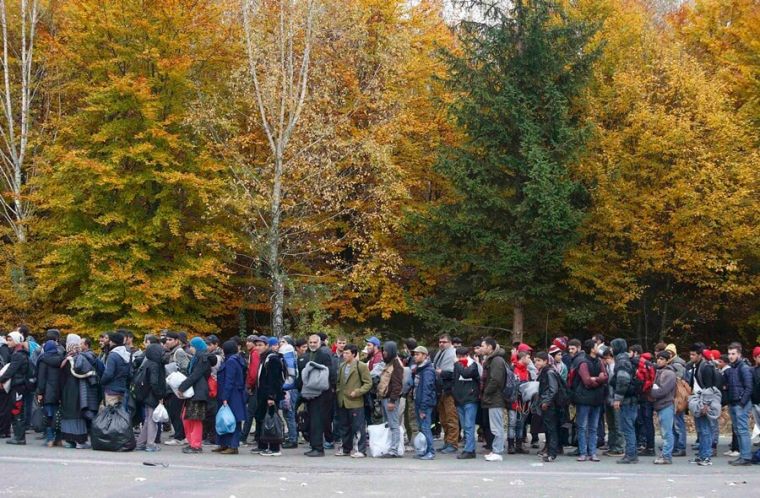Downfall of European Union seen with leaders' decision to welcome migrants

The massive influx of migrants from the Middle East to Europe could lead to the "political and cultural downfall" of the European Union, a veteran columnist of The Telegraph warned.
In his commentary, Philip Johnston expressed shock at the "stupefying naivety" of European leaders, particularly German Chancellor Angela Merkel who actually encouraged the tens of thousands of migrants mostly from Syria to seek refuge in Germany.
He said the sobering sight of the long line of migrants walking on open field through Slovenia "may come to symbolise the moment the EU began to fall apart."
Johnston said this is highly ironic since the European Union was created in the late 1950s precisely to prevent such scenes from happening in the continent.
"Yet here we are more than half a century later facing the prospect of thousands – maybe hundreds of thousands – of displaced people freezing and starving in the grasslands of eastern Europe as winter closes in," he said.
Johnston noted that Germany opened its doors mainly to Syrians fleeing the civil war in their country. But now, he said "the exodus has been swelled by migrants from many other countries looking for a better life."
The Daily Telegraph commentator made it clear that he is not blaming the migrants for seeking a better life in Europe. But the problem is that, "they're not going to get a better life," he wrote.
"Arguably a transit centre in Europe might be preferable to a refugee camp in Jordan or Turkey ... But having encouraged people to move, the Europeans are now pulling up the drawbridge because they have found dealing with the influx overwhelming," he said.
Johnston predicted that the resulting political upheaval over the refugee crisis will "unleash extremist politics in Europe," including anti-immigrant demonstrations and riots.
In the meantime, the populations of the various EU nations are expected to see dramatic changes.
"In the early stages of this crisis, the rationale ascribed to Germany's policy was that they need people because of a falling birth rate and dwindling population," Johnston said.
However the same rationale could not be applied in Britain, which is also expected to get its share of the thousands of migrants as agreed upon by EU leaders.
"Britain, by contrast, is growing rapidly," Johnston said, adding that UK's current population of around 64 million is expected to increase to more than 70 million within 12 years, and then another 10 million in the next 25 years. "Is it any surprise we have too few houses, schools, hospitals and trains to cope?" he asked.
Johnston predicted that the EU will suffer a massive financial hit as a result of population growth predominantly fuelled by immigration.
He said this is because "the dependents of new arrivals will be a net cost until they grow up, get work and pay taxes. However, their parents will in time themselves become recipients of the pensions and other age-related benefits which have become the biggest cost on the welfare system."











